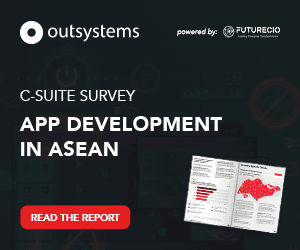Artificial intelligence (AI) is reshaping industries in the Asia-Pacific (APAC) region, yet its potential remains confined by foundational issues. Recent research conducted by Informatica shows that 56% of APAC data leaders struggle to manage over 1,000 data sources within their organisations. Equally concerning, 42% cite AI ethics and data privacy as key challenges, reflecting the growing complexity of scaling AI initiatives responsibly.
These statistics highlight a critical reality: AI-readiness begins with a robust data foundation. High-quality, governed and accessible data is the cornerstone of successful AI and Generative AI (GenAI) systems. Without it, even the most advanced AI tools cannot deliver transformative results.
From data chaos to clear use cases
While these advancements are promising, there are still challenges for APAC organisations. Regulatory frameworks across the region are tightening, and while guardrails are essential for ensuring responsible AI adoption, they also add layers of complexity to deployments.

Adding to this is a growing talent gap. As AI reshapes industries, the demand for advanced skills is surging. Recent research from LinkedIn reveals that 91% of APAC organisations are prioritising skill development this year, recognising that the skills required for many roles are expected to increase 68% by 2030 due to AI’s transformative impact.
These regulatory and skills challenges can be addressed by organisations having the right data foundation in place. For example, with the right data management platform, organisations can better anticipate and keep pace with the changing regulatory landscape.
With the same robust data foundation, organisations can also map their workforce competency to launch talent development programs in AI and data across enterprise level and utilise a comprehensive metadata-driven intelligence layer to accelerate responsible AI-driven development with trusted data.
The real power of AI emerges when solid data foundations are paired with real-world applications. Across APAC, organisations are already leveraging AI to drive transformative outcomes by addressing their most pressing data challenges, which include regulatory and workplace skills requirements.
Take Helia, Australia’s first lenders mortgage insurance provider, as an example. Operating in the complex mortgage lending industry and regulatory environment, Helia manages large volumes of customer data. To address this complexity, the organisation modernised its systems with AI-powered data management platform solution.
This transformation enabled faster decision-making in underwriting and claims, improved transparency in data retention, and ensured data security and responsible data management, illustrating how organisations can succeed by focusing on data-driven innovation.
In the life sciences sector, the stakes are even higher. Developing a new drug can take over a decade due to lengthy clinical trials and regulatory hurdles. Despite scientific advancements, the innovation cycle has struggled to keep pace. GenAI is now revolutionising the process of designing new drugs and accelerating research and development.
Amgen, a global biotechnology leader, similarly has adopted AI-powered data management platform solution and a federated process-enabled approach to achieve reliable, governed data for advanced analytics and insights.
This approach has significantly reduced time-to-market for new treatments, improved patient care and added billions of dollars in value to the life sciences industry. For patients, these innovations can be life-changing, if not lifesaving.
AI trends that will redefine 2025
As we look towards 2025, several emerging trends are set to redefine how businesses in APAC approach AI and data management. At the core of these shifts is acknowledging that winning with data – transforming data from a siloed asset into a strategic advantage – will be the key to thriving in the AI-powered future. Here are the trends shaping this landscape:
The Rise of Enterprise AI Agents
AI agents will become a standard part of enterprise operations, driven by advances in GPUs and Large Language Models (LLM). Organisations will deploy specialised agents across functions like customer service, data management and technical support.
These agents will be tested in carefully constructed simulations before deployment, combining real world data with synthetically generated training data that helps them handle edge cases and improve performance. The key differentiator will be how quickly organisations can run their agent improvement loops and the quality of human oversight in verifying agent outputs.
Organisations need a leading-edge data management platform backed by a robust metadata-driven AI engine that supports them in orchestrating agent improvement loops and simulations, while working with all key enterprise sources of structured and unstructured data in the process.
Data Foundations Become Mission-Critical
Data foundation challenges will become the primary bottleneck for AI adoption, particularly in the APAC region where organisations are struggling with thousands of data sources. Success in 2025 will depend on how well companies can provide their AI systems with high-quality, governed data across multiple sources and modalities.
This will drive increased investment in AI-powered data management solutions that can handle the complexity of modern data landscapes while complying with the ever-evolving regulations. Organisations that fail to address their data foundation issues to get their data ready for AI will find themselves unable to compete effectively with AI-enabled competitors.
Responsible AI
Much like the current privacy regulations that emerged in response to consumer data concerns, 2025 will see the implementation of critical AI regulations focusing on transparency, fairness, and ethical use of training data. Organisations will need to implement adaptive governance frameworks that can demonstrate compliance with these regulations while still accelerating competitive advantages.
This requires AI-powered compliance tools that can automatically monitor and enforce responsible AI practices across enterprise systems. In a nutshell, organisations need to look beyond today’s AI regulatory challenge and anticipate tomorrow’s demands for a modern AI-powered data management solution that can help them navigate complex regulatory landscapes while enabling them to accelerate their AI innovations with confidence and trust.
AI’s trajectory in APAC is one of promise and complexity. As the region grapples with challenges in data management, ethics and regulation, by putting data first before AI game plan, APAC organisations can have skin in the game and drive positive business outcomes that lead to winning the competitive advantage.




